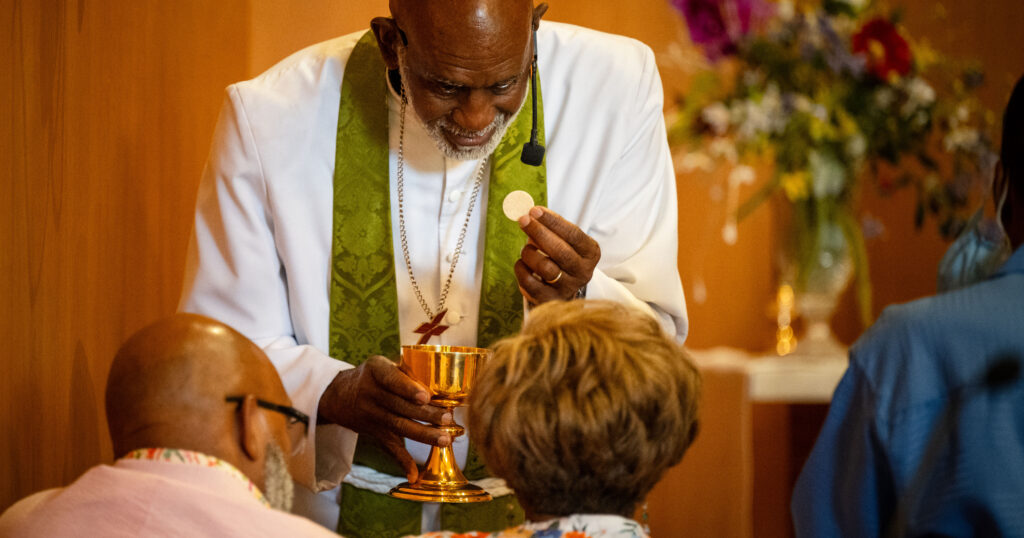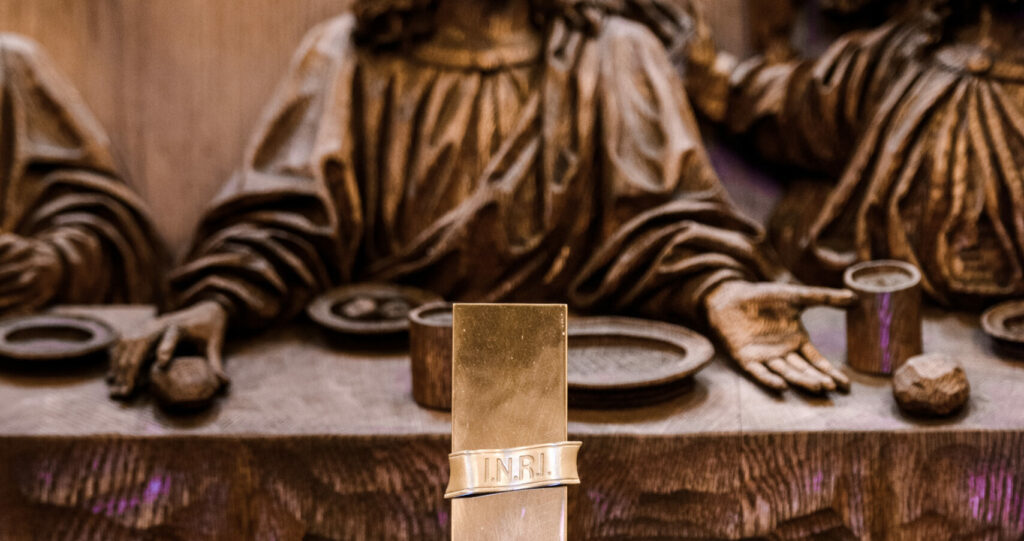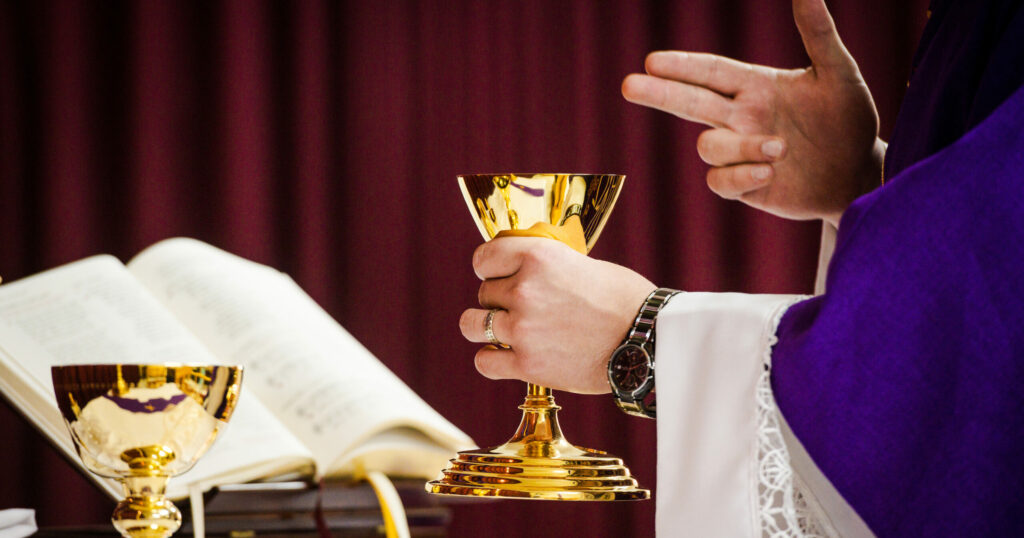by Matthew C. Harrison
We are “Book of Concord Lutherans.” Every rostered church worker in the LCMS; every congregation, district and LCMS institution; every school and LCMS university has defined itself as a Book of Concord Lutheran endeavor. It’s on display most vividly when a pastor is ordained and installed in a congregation. He swears to believe and teach in complete accord with the divinely inspired Scriptures and the Book of Concord.
The Book of Concord was ratified in 1580 on the 50th anniversary of the Augsburg Confession. Its full title betrays its intent: “Concordia the Pious Confession of Faith and Doctrine Repeated by Unanimous Consent of the Electors, Princes, and Estates of the Empire, and of Their Theologians, who Embrace the Augsburg Confession.”
With the word “Repeated,” the Book of Concord asserts that its later documents, such as the 1577 Formula of Concord, are all just a repetition of the faith expressed in the 1530 Augsburg Confession. Some liberal and “moderate” Lutherans who have given up the divine authority and inerrancy of Scripture have rejected the Book of Concord under the guise that the Formula departed from the real intent of the Augsburg Confession. They argue that those who wrote the Formula of Concord were obsessed with hyper-orthodoxy and insisted on doctrine and divisions where there should not be any.
This sad state of affairs, which has troubled Lutheranism since 1530, was aided and abetted by one of our great heroes, Luther’s gifted friend Philip Melanchthon. Melanchthon wrote the Augsburg Confession while present at the Diet of Augsburg (a meeting of the estates of the Holy Roman Empire), since Luther, then a wanted man, could not attend. While Luther considered the doctrine of the Augsburg Confession as his, Melanchthon regarded it as his own work; even after its delivery to the emperor, he continued to tweak it. As he did so, he was also going wobbly on some Lutheran and biblical basics, one of which was the true bodily presence of Christ in the Sacrament.
By the end of his life, Luther was rumbling and grumbling about Melanchthon’s errors. Melanchthon located Christ’s presence more in the action or administration of the Supper, while Luther located Christ’s body and blood for forgiveness in the bread and wine, delivered into the mouth of the recipient. John Calvin, who claimed Melanchthon’s support, held a symbolic view of the Lord’s Supper: Christ, Calvin held, was “present,” but not with the very body and blood. Because Christ’s body had ascended to the right hand of God, Calvin argued, His body and blood could in no real way be in the Sacrament. Melanchthon, interested in reconciliation, began to use language that did not clearly distinguish the Lutheran doctrine from Calvin’s unbiblical teaching.
Luther died in 1546, never publicly breaking with Melanchthon. Luther knew that after he died, people would start to respond to controversies by saying, “If Luther were alive, he’d say such and such.” He warned everyone to be wary of such arguments and reasserted his clear conviction about the real presence of Christ in the Sacrament. And indeed, several controversies did break out after Luther died — one of the most bitter revolving around the Lord’s Supper. It included questions of Jesus and His two natures (divine and human) in one Christ. Calvin, Zwingli and their friends asserted that Christ’s body was sitting at the right hand of God in heaven; only His divine nature could be present in other places. Luther and his faithful followers rightly saw this as a false teaching on the two natures of Christ. Like the ancient Council of Chalcedon confessed, the two natures are distinct but not separate. The divine nature inhabits the human like fire and iron, distinct but inseparable. For Luther, the main argument was always that the divine Christ may do as He pleases, and He demonstrates His will in a last will and testament that remains in effect until the end of time: “Take, eat, this is My body. … Drink of it, all of you, this is My blood.” Whether or not we can understand it rationally, this must be true because Christ says it’s true.
After Luther’s death, things went from bad to worse at the University of Wittenberg. By 1571, Melanchthon was dead, and his followers produced a new catechism that was ambiguous on the Sacrament and seemed to support Calvin’s double predestination doctrine. Martin Chemnitz raised the alarm. A couple of years later, Elector August of Saxony intercepted some damning correspondence from his high ecclesiastical officials. They’d been telling the prince that nothing was changed from Luther’s teaching, and those crabbing about it were just extremists. The letters revealed that these deceivers were attempting to Calvinize Luther’s own church and to fool August, even using his pious wife, Anna, to get at him. This “Crypto-Calvinist” controversy ended with prison sentences, including a long one for Melanchthon’s son-in-law, Caspar Peucer.
According to Luther and our Lutheran confession, the Lord’s Supper is the Gospel: “Given and shed for you.” It depends wholly on the Word of the testator, that is, Christ. It is His last will and testament. He tells us to hold Him to His words regarding what the Sacrament is. That’s why it is so inspiring to read the Formula of Concord, Article VII, on the Sacrament: We see how seriously our forebears took the Bible. Luther and the Reformed opposed the Roman Catholic sacrifice of the mass, transubstantiation and other false teachings — and still would today — because these teachings deviated from God’s Word.
The Formula of Concord, particularly the Epitome, summarizes the issues wonderfully. It also repeats beautifully what was asserted by Melanchthon in the original Augsburg Confession, that in the Supper “the true body and blood of Christ are truly present under the form of bread and wine in the Lord’s Supper, and are distributed and received there” (AC X; Kolb, German text).
Present, distributed and received. The Word of Christ effects the presence of Christ’s body and blood. The pastor hands us the body and blood of Christ, and we still receive bread and wine at the same time. We receive the body and blood, no matter if we believe or not. Our faith does not make the Sacrament. Christ’s words do. When we receive in faith confessing Christ, His Sacrament and forgiveness, we receive unto life. We are Book of Concord Lutherans.
— Pastor Matthew C. Harrison





